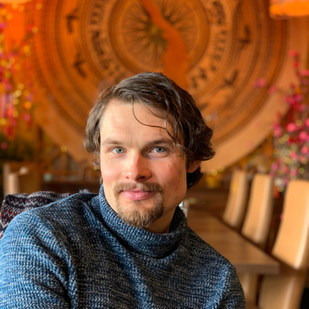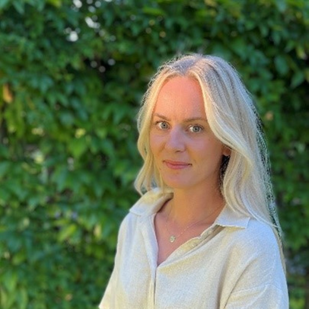Speakers in Workshops 2022
A: Food Planning for Sustainable Consumption and Healthier Living
.png)
Dr Chiara Tornaghi is a critical human geographer and scholar-activist, with a background in politics, sociology and planning. Her current research is grounded in the principles of agroecology, social equity, more-than-human care and planetary health, and is focused mainly at the intersection between urbanization, agroecology, resource sovereignty, decolonial and feminist politics. Before joining Coventry University in 2015, she held positions as a lecturer and researcher in the School of Geography, University of Leeds (2008-2015); at the Interdisciplinary Centre for Urban Culture and Public Space (SKuOR), TU Vienna (2009); at the Faculty of Sociology, University of Milano-Bicocca (2005-2008) and the Faculty of Architecture and Society, Politecnico of Milan (2008-09). She has been a member of the Steering Committee of the International Critical Geography Group (2015-today) and elected chair of the AESOP Sustainable Food Planning group (2016-2022). Her current projects include Urbanising in Place, SOIL NEXUS and Gaza Foodways among others. Alongside her academic work, Dr Tornaghi has been involved in establishing several community-led food sovereignty initiatives, and she is training herself in medical herbalism. Her latest book is Resourcing an Agroecological Urbanism. Political, transformational and territorial dimensions.
.png)
Kevin Morgan is a Professor of Governance and Development in the School of Geography and Planning at Cardiff University, where he is also the Dean of Engagement. His interests include the theory, policy and practice of place-based innovation systems; multi-level governance regimes; experimental governance; sustainable food systems; and the foundational economy. Apart from his academic work he has worked with the European Commission, the OECD, and numerous governments, development agencies and civil society organisations in Europe. He co-authored the European Commission’s new place-based innovation policy (Partnerships for Regional Innovation) and he is part of a Cardiff University team of researchers working on the Cardiff City Region’s Challenge Fund, which is designed to promote innovative solutions in 3 targeted fields, namely: decarbonisation, health and wellbeing, and transforming communities. He is co-convenor of the Centre for Innovation Policy Research.
B: The SHIFT Framework for Health Equity in Food Environment Transformations
.png)
Meena Daivadanam is a physician with Ph.D. in public health interventions. She is an associate professor (public health and nutrition) and senior lecturer (global health) at the Department of Women’s and Children’s Health, Uppsala University; and leads a sub-group on Global NCD Prevention within the International Child Health and Nutrition research group at the department. Meena works with intervention and implementation research, particularly community-based complex interventions for non-communicable diseases (NCD). She works primarily with non-communicable diseases prevention which includes evaluating and understanding food and physical activity environments and behaviors and the interactions between the two, also from an equity perspective. Her experience includes implementing household dietary interventions in India (rural Kerala), self-management support interventions in Sweden (Stockholm), South Africa (Cape Town), and Uganda (Iganga), and co-design for community-based reduction of cardiometabolic risk in Sweden (Uppsala). A predominant focus of her work has been on socioeconomically disadvantaged and under-resourced populations.
.png)
Dheepa Jeyapalan is a dietitian and food systems thinker with a passion for addressing health inequities and working with communities in a way that centers on self-determination. Having previously worked in the public, NGO, and academic sectors in Australia, the United Kingdom, and the Pacific region, Dheepa has been involved in the design, implementation and evaluation of programs that address the structural barriers many faces in accessing and enjoying nutritious food. Dheepa has worked across the food system throughout her career to center the needs and voices of communities to ensure equitable practices are foundational to her work. Her most recent roles have been at VicHealth, first as the Advisor to the CEO of VicHealth, Dr. Sandro Demaio, and currently as the Manager of the Healthy and Sustainable Food Systems team. Her team is leading an integrated collective investment of 7 place-based approaches across Victoria to support local and resilient food systems. This multi-year program will see 7 individual models that are reflective of community needs, improving diets, while providing employment opportunities for young people, capacity building for food enterprises, and collective advocacy outcomes.
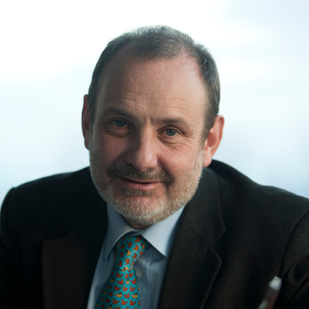
Francesco Branca, MD, PhD, Director of the Department of Nutrition and Food Safety in the World Health Organization, Geneva (since February 2020). In 2008-2019 I have been the Director of the Department of Nutrition for Health and Development. In this period WHO has developed a WHO Nutrition strategy, established a new nutrition guideline development process and developed a Comprehensive Implementation Plan on Maternal, Infant and Young Child Nutrition with six global targets. I have been leading the preparation of the 2nd International Conference on Nutrition and the Secretariat of the Decade of Action on Nutrition. In 2005-2008 I have been the Regional Advisor for Nutrition at the WHO Regional Office for Europe. In 1988-2005 I have been a Scientist at the Italian Food and Nutrition Research Institute where I was leading studies on the effects of food and nutrients on human health at the different stages of the life cycle and on the impact of public health nutrition programmes. I have been President of the Federation of the European Nutrition Societies in 2003-2007. In 1985-1986 I have been a medical staff of a Primary Health Care project in the South of Somalia run by the Italian NGO CISP. I graduated in Medicine and Surgery and specialized in Diabetology and Metabolic Diseases at the Universita' Cattolica del Sacro Cuore, Roma and obtained a Msc in Nutrition and then a PhD at Aberdeen University.
Oscar Rwegasira Mukasa is a researcher in global health with an interest in diseases and conditions including Malaria, Tuberculosis, HIV, Non-communicable diseases, and other areas such as nutrition, equity, and gender. Mr. Mukasa has a broad experience in the management and use of data from surveillance systems including Health and Demographic Surveillance Systems (HDSS) and Clinical Surveillance System (CSS). He has profound experience in the interface of research, programme implementation, and policy-making environments. He has been a member of parliament, member of the parliamentary steering committee, chairperson for the committee of parliament for HIV, Tuberculosis, and Narcotics, and chairperson for caucus of parliamentarians on tuberculosis. Oscar has been a member of caucuses of parliamentarians on nutrition and HIV, member of the Tanzania National Coordinating Mechanism for Global Fund in Tanzania, member of parliamentary global forums including UNITE initiative which is a network of parliamentarians committed to achieving political impact towards ending infections diseases as global health threats.
C: Sustainable Animal Food Production in War and Peace
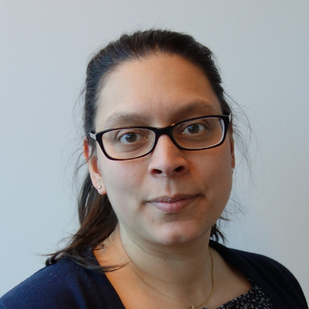
Dr Serina Ahlgren is a researcher within agricultural sustainability. She works at RISE, which is a governmental Swedish research institute. Serina´s research involves environmental system studies on agriculture and food, research questions regard e.g. sustainable diets with a focus on climate and biodiversity impacts, but also more in-depth sustainability evaluation of different agricultural production methods. She also does research on how agriculture can become less dependent on fossil fuels and the import of mineral fertilizers.
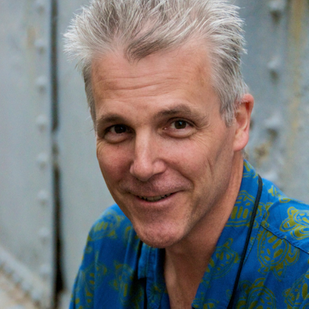
John Young is a veterinarian by profession, John joined INASP as Executive Director in November 2018. He previously spent 17 years developing and leading the Research and Policy in Development (RAPID) programme at the Overseas Development Institute (ODI). Prior to that, he spent nearly 20 years based in Sri Lanka, Kenya, and Indonesia developing, implementing and testing new approaches to veterinary and other livestock services, rural development, and decentralized public services. Since returning to the UK, he has undertaken research, evaluations, and other assignments in more than 20 developing and emerging countries. He has also advised international NGOs and bilateral and multilateral development organizations on a wide range of topics including research-policy linkages; policy engagement and influence; organizational and institutional development; capacity development, especially of think tanks and think tank-like organizations; government service reform; monitoring evaluation and learning; and strategic communication.
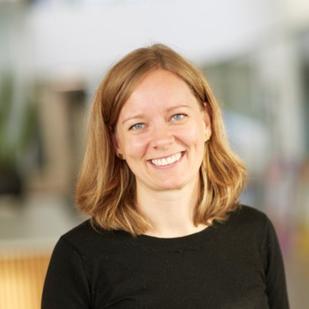
Dr. Anne Katrine Bolvig Sørensen is a nutrition scientist at Arla Foods. She graduated a master's in molecular biology from Aarhus University in 2011, and Ph.D. in Animal Science in 2016. After a couple of years as a team leader in the Danish Cancer Society Research Center, she joined the Global Nutrition Department at Arla Foods (2018) where she supports Sweden and Finland in bringing healthier products and food inspiration to consumers. Anne Katrine is deeply engaged and concerned about the current health status of our planet and the people inhabiting it and feels privileged that the majority of her work tasks are dedicated to achieving Arla Foods’ sustainability strategy.
D: Diet-Environment-Health Nexus
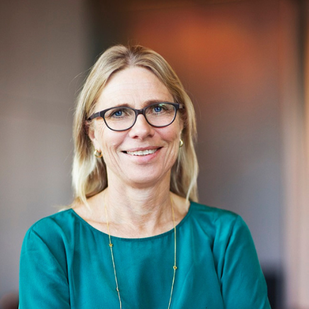
Dr Annica Sohlström is Director General at the Swedish Food Agency, the governmental authority working for safe food and drinking water, fair trade in food practices and healthy and sustainable food consumption. Annica Sohlström has a PhD and is an associate professor in Nutrition. Her research was about maternal nutrition and body composition and the effects on the offspring. As Head of the nutrition department for nine years and Director General for the Swedish Food Agency for the last six years, she has a long experience in public health nutrition. She has also been Secretary General for a large Swedish NGO, Forum Civ, supporting and building capacity in civil society organizations in low-income countries with the aim of building democracy.
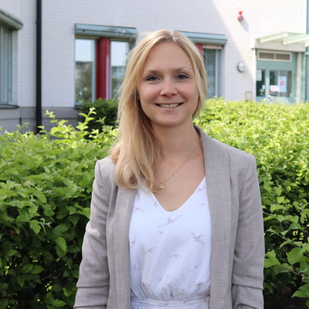
Carolin Zorell is a Senior Lecturer in Political Science at Örebro university, investigating the preconditions and dynamics of political consumerism and more generally, the transformation of society towards environmental sustainability. Carolin focuses especially, but not exclusively, on food consumption and sustainability from a cross-disciplinary lens, aiming to better understand whether, when, and in what ways people act in one way or the other. In particular, I am studying how context and peer groups form behavioral patterns and thereby enable or hinder the transformation of society towards sustainability.

Dr Alicja Wolk is Professor at Karolinska Institutet. Her research focuses on modifiable lifestyle factors – mainly diet – of importance for human and planetary health. To address the societal health challenges with high-quality research, in 1997, she founded two longitudinal cohorts including over 100,000 participants (nearly 50,000 donated saliva samples for genetic studies and many donated blood, urine, adipose tissue, and feces samples). This extremely rich scientific material is now broadly available for research via the national infrastructure SIMPLER (Swedish Infrastructure for Medical Population-based Life-course and Environmental Research). Alicja Wolk has supervised over 50 PhDs and postdocs, is a highly cited researcher with over 800 scientific papers, recipient of the Distinguished Professor Award, and member (nominated) of the prestigious international “AcademiaNet - Outstanding Female Academics.”
E: Zero Hunger: Is Smallholder Farming the Solution?
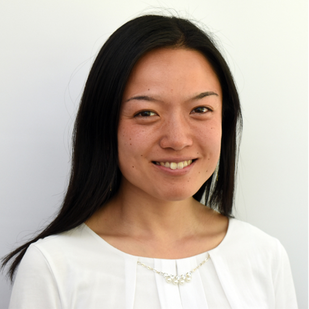
Ayako Ebata is an agricultural economist and a Research Fellow at the Institute of Development Studies (IDS) in the UK. She co-leads the Food Equity Centre, a global collaboration aiming at understanding the socio-political mechanisms that lead to persistent poverty, ill health, malnutrition, and food insecurity experienced by marginalised people in food systems. In particular, she focuses on unpacking economic inequality along agri-food value chains and their root causes through a socio-political lens. She has advised donor institutions, NGOs, and international organizations in building sustainable, equitable and fair food systems and led a number of value chain research across the world.
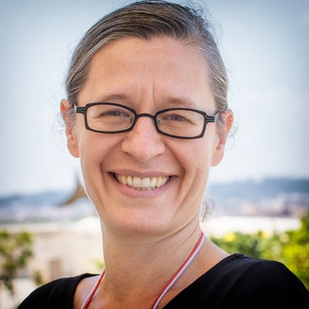
Isabelle Baltenweck, a French national, has been based in East Africa for the last 20 years, working at the International Livestock Research Institute (Nairobi Kenya). She is a development economist with twenty years of post-doctoral experience in agricultural systems in Africa, South and South-East Asia, with a focus on livestock value chains. Starting her career as a development economist with an emphasis on adoption and impact assessment studies in livestock systems, she has increasingly sharpened her skills in gender and social equity research, looking at how women’s and men’s needs and capabilities differ in terms of accessing and using technologies and practices, also resulting in varied, and sometimes opposite, impact. Her research approach uses in many instances mixed methods approaches, to be able to measure quantitatively impact as well as understand reasons and drivers of change through qualitative approaches. She has worked at the interface of research and development, working with the private sector, farmers’ groups, ministries, NGOs and investors. Her work directly relates to the activities of development practitioners and the private sector, resulting in publications targeted at that audience. In addition to leading the ILRI research program on ‘Policies Institutions and Livelihoods’, she leads the CGIAR’s Sustainable Animal Productivity for Livelihoods, Nutrition and Gender inclusion (SAPLING) Initiative, which brings together partners from ICARDA and CIAT, in addition to the ILRI researchers.
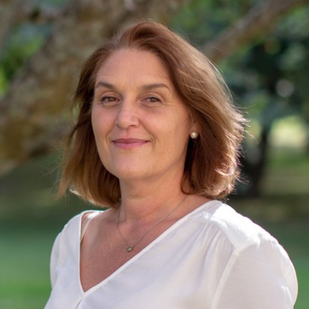
Eleanor Fisher is Professor of International Development and Head of Research at the Nordic Africa Institute in Uppsala. Over a thirty-year period, her portfolio of research has examined livelihood change and poverty dynamics in the Global South, with particular attention to issues of knowledge, power, agency and gender. Her current research explores how small-holder farming populations can build resilience to climate variability and extremes in ways that are socially equitable. This develops thinking on sustainability transformations and how commitment to principles of equity and social justice can be translated into practice within transformative climate adaptation initiatives.
F: Food Safety versus Food Security
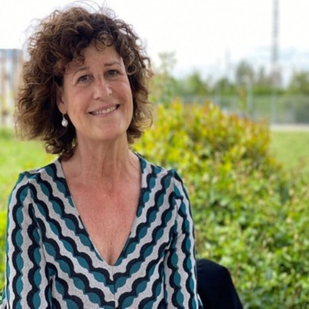
Dr Marta Hugas served as Chief Scientist at the European Food Safety Authority until 1st March 2022. The position addressed the development of EFSA’s scientific strategic direction; acting as a focal point on scientific matters and facilitating the understanding of science; fostering scientific cooperation as well as leveraging connections and networks for promoting EFSA’s research priorities. In 2020 Marta was appointed to the scientific group preparing for the UN Food Safety Summit held in 2021. She was co-coordinator of Action Track 2: Shifting to sustainable consumption habits. She joined EFSA in 2003 and since then Marta held several positions: Head of Biological Hazards Unit (BIOHAZ), Head of the Risk Assessment and Scientific Assistance Department a.i. (RASA) and Head of the Biological Hazards and Contaminants Unit (BIOCONTAM). Prior to joining EFSA, she worked for the Institute for Food and Agricultural Research and Technology (IRTA) in Spain, where she was Head of the Food Microbiology and Biotechnology Unit and led a research group on applied research on meat and food safety. From 1992 to 2004 she was an Associate Professor at the University of Barcelona. Marta holds a BSc in biological sciences, an MSc in genetics and microbial biotechnology and a PhD in food microbiology. Marta’s areas of expertise focus on food hygiene, development of starter and bioprotective cultures, probiotics for the safety of poultry meat, emerging preservation technologies, risk assessment of biological hazards, sustainability impact of food safety, and the science of providing scientific advice to policymakers. Dr Hugas has extensively published papers and book chapters.
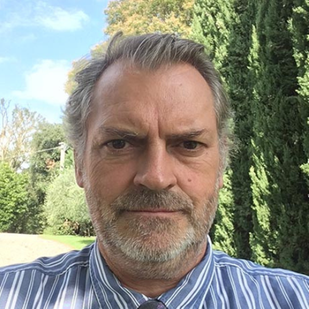
Dr. Timothy Robinson is Senior Livestock Policy Officer with FAO’s Animal Production and Health Division. He works on sustainable livestock systems with a focus on climate and natural resource use. Timothy has previously been a principal investigator at the International Livestock Research Institute in Nairobi, Kenya, where he was involved in a number of projects and programs — later serving as the focal point for antimicrobial resistance work conducted by the institute, estimating antimicrobial consumption in the livestock sector and exploring the links between this and the growing problem of antimicrobial resistance in public health. He has thirty years of post-doctoral experience working in the field of spatial analysis in relation to agriculture, food security, and poverty alleviation. During this time, he has had residential contracts in Kenya and Zambia and has worked within the United Nations, the CGIAR system, UK universities, and government departments.
G: Foodscapes for the Future - Creating local support for sustainable human health
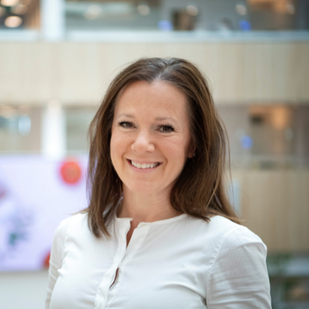
Paula Frösell is a registered dietitian, with a bachelor of economics, who works as Senior Brand manager for health at ICA Sweden. She has a long background within the company but has also worked clinically as a dietitian for a few years. At ICA she is responsible for health issues at a strategic level but is also very involved in the operational work. She is particularly interested in prevention work for better public health and, like ICA, she wants to inspire good eating habits, especially in children and young people and their families.
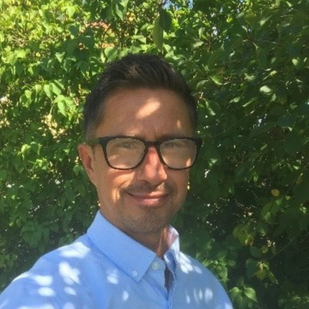
Fredrik Eriksson has many years of experience as a leisure and recreation consultant within Säffle municipality. He has a great commitment to issues regarding health and leisure, supporting local associations in actions for a healthy city.
Fredrik together with Elin Bergström, continue to run local projects in Säffle based on the collaborative work Jämlik barnhälsa (child health equity). Through a long-term collaborative work with three municipalities and Region Värmland, work is being carried out to slow down the development of childhood obesity. The work focuses on system changes that need to be made, including the foodscape.
.png)
Dheepa Jeyapalan is a dietitian and food systems thinker with a passion for addressing health inequities and working with communities in a way that centers on self-determination. Having previously worked in the public, NGO, and academic sectors in Australia, the United Kingdom, and the Pacific region, Dheepa has been involved in the design, implementation and evaluation of programs that address the structural barriers many faces in accessing and enjoying nutritious food. Dheepa has worked across the food system throughout her career to center the needs and voices of communities to ensure equitable practices are foundational to her work. Her most recent roles have been at VicHealth, first as the Advisor to the CEO of VicHealth, Dr. Sandro Demaio, and currently as the Manager of the Healthy and Sustainable Food Systems team. Her team is leading an integrated collective investment of 7 place-based approaches across Victoria to support local and resilient food systems. This multi-year program will see 7 individual models that are reflective of community needs, improving diets, while providing employment opportunities for young people, capacity building for food enterprises, and collective advocacy outcomes.
H: A Global Health Perspective on the Future of Meat
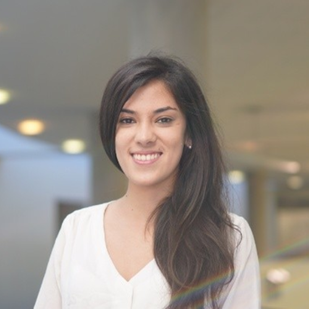
Nicole Rocque, Senior Innovation Specialist, Good Food Institute India (GFI India). The GFI India is the central, pre-eminent expert non-profit organization which has supported the growth of the smart protein (also known as alternative protein globally) sector from the ground up over the last 5 years across industry, science, and policy. At GFI India, Nicole is focused on building out the early-stage ecosystem for the smart protein sector in India. She works closely with entrepreneurs, investors, corporate professionals, students and researchers, to support capacity building and market access for the development of smart protein products - thereby building a model for growth into these sectors and transforming the food system. Nicole brings experience in pharmaceuticals, biotechnology and technology commercialization to promote the growth of the smart protein sector in India. She is passionate about climate action and public health, which has led her to GFI India, in the hope to shape an Indian response to the biggest challenges of our lifetime.
Dr Elin Röös, Senior Lecturer, Swedish University of Agricultural Sciences (SLU)
I. Tackling Antimicrobial Resistance for Sustainable Food Systems - how to address the knowledge, practice and governance gaps
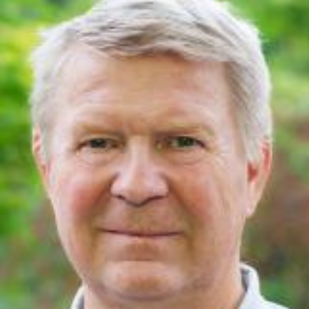
Ulf Magnusson is a veterinarian and professor of animal reproduction at the Department of Clinical Sciences, SLU. His research activities are on infectious diseases that transmit from food-producing animals to humans, including antimicrobial resistance, mainly in Africa and Asia. Parts of his work is conducted together with FAO and the International Livestock research Institute (ILRI), Kenya. The bulk of Ulf Magnusson’s research is linked to food security and nutrition in low-income countries.
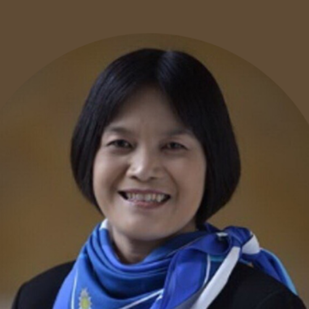
Julaporn Srinha is a Senior veterinary officer of The Division of Animal Feed and Veterinary Products Control, Department of Livestock Development. She received her Doctor of Veterinary Medicine from Khon Kaen University, her MSc in Toxicology from Mahidol University and her MSc in Food Science, Safety & Health from Heriot-Watt University, Edinburgh, UK. She joined the Department of Livestock Development in 1996 and is currently responsible for animal feed, feed additive, medicated feed, veterinary drugs and hazardous substances for livestock.

